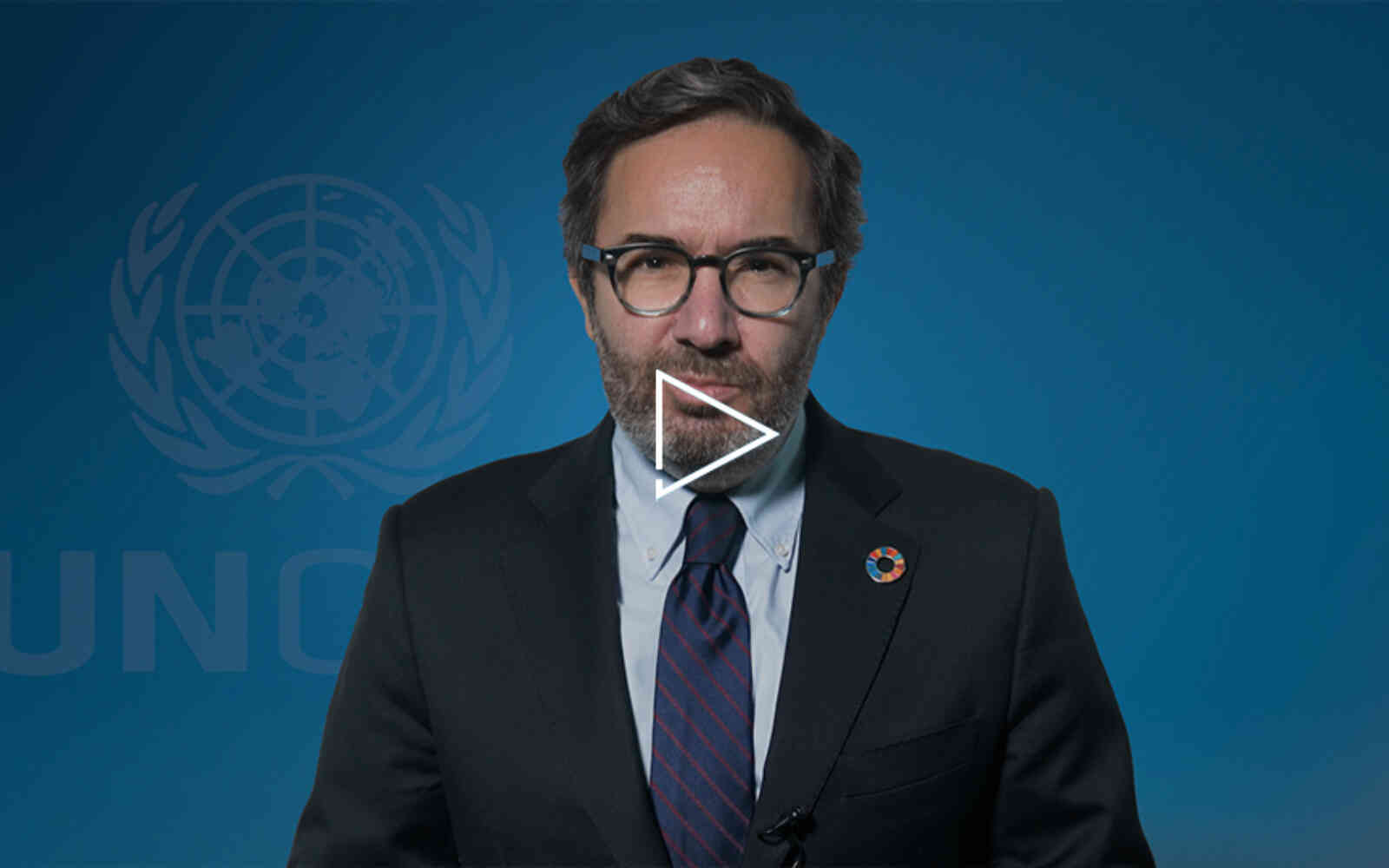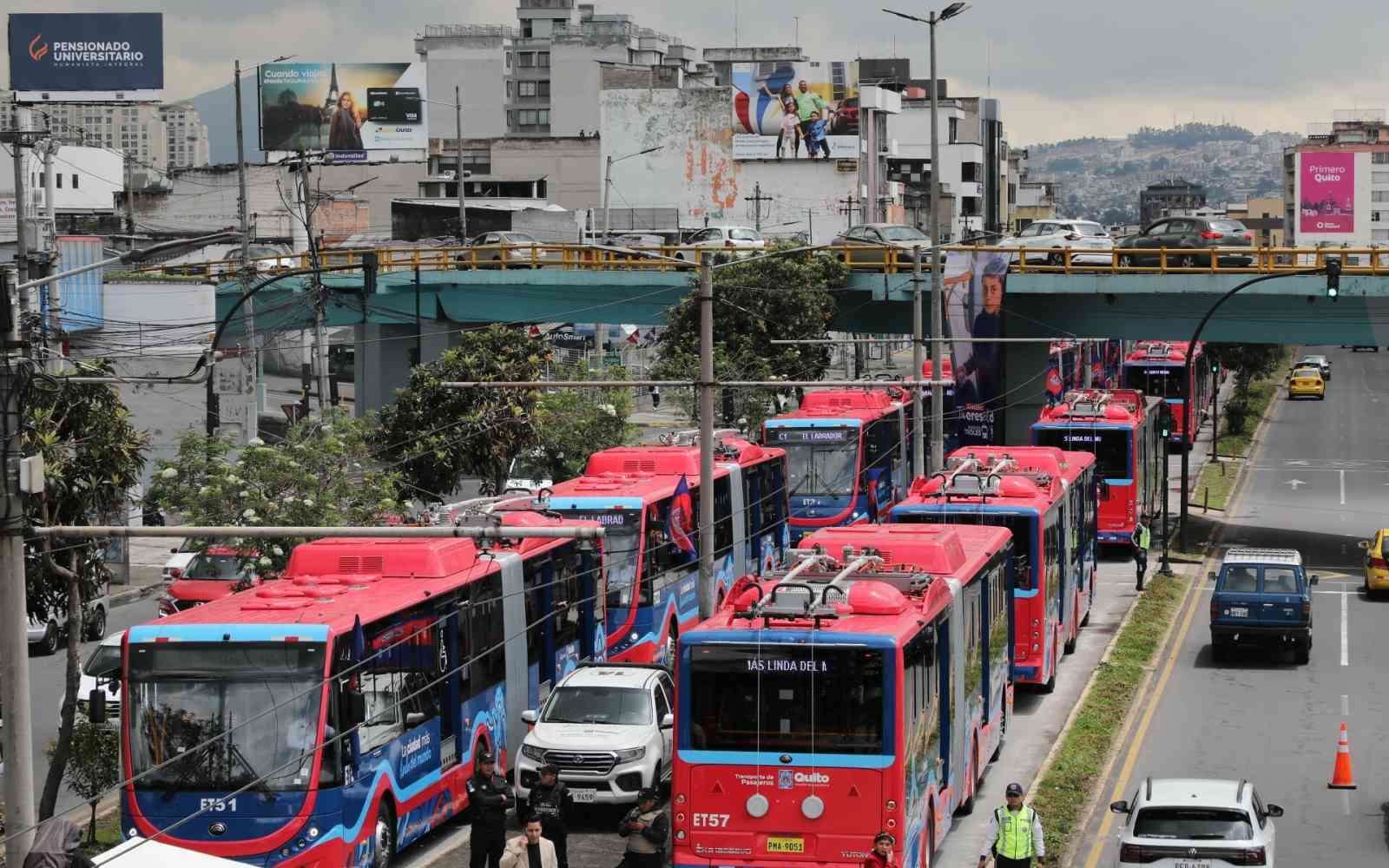The United Nations Office for Project Services (UNOPS)
Promoting Low-carbon Energy Transition and Accelerating Global Climate Action
Statement by Jorge Moreira da Silva, Under-Secretary-General and UNOPS Executive Director, at the session 'Promoting Low-carbon Energy Transition and Accelerating Global Climate Action', co-hosted by the Global Energy Interconnection Development and Cooperation Organization (GEIDCO), the UNFCCC Secretariat and the World Meteorological Organization (WMO) at COP29 – 15 November 2024
[check against delivery]
Excellencies, dear colleagues, friends,
It is a privilege to be here with you today to focus on this urgent topic.
The clock is ticking on our chance to keep the Paris Climate Agreement target of 1.5°C alive.
The future of our planet, people and economies depends on the ambition, financing, and accelerated action that countries can mobilize over the next months.
Last year, countries agreed to move away from fossil fuels, and to triple renewables capacity, double energy efficiency, and halt deforestation by 2030.
Yet 2024 stands to most likely be the hottest on record.
With the energy sector making up more than three-quarters of greenhouse gas (GHG) emissions globally, accelerating the transition to clean energy is essential.
Yet current national plans will deliver only half of the required growth in renewable power by 2030.
This needs to change urgently. The G20 needs to lead, but every country has a role to play.
UNOPS is committed to supporting efforts to provide access to energy for all, and to ensure a clean energy transition, through our key areas of expertise, across infrastructure, procurement and project management.
We focus on operations. We implement projects in the most challenging contexts for some of the world’s most vulnerable populations.
And I speak to you today on their behalf: the 760m people without access to clean modern energy, the 1 billion people who are served by health-care facilities with no or at best unreliable electricity access, and the 2.1 billion people without access to clean cooking.
I speak to you on behalf of the people of Chad, Mali, Sudan, and the Central African Republic, countries among the most vulnerable to climate change and also experiencing armed conflict.
Achieving SDG7 is not a technology problem: Solar and wind energy have reached technological maturity. They are hugely cost-competitive. The falling cost of lithium ion batteries and smart grid technology make them attractive options.
We now have to address the financing and implementation challenge.
We can do this.
Last year – and for the first time – investment in renewable power and grids overtook the amount spent on fossil fuels.
We commend China’s leadership in the renewable energy industry, turning clean energy into a key driver of economic growth for the country.
But globally, progress on the energy transition is not even.
Currently, emerging and developing economies in Latin America, Africa and Southeast Asia account for less than 5% of the value generated from producing clean technologies.
At UNOPS, we support a just and equitable low-carbon transition through practical, evidence-based solutions.
We
drive progress towards SDG7 as an end in and of itself and as an enabling condition for other SDGs
respond to the needs of the least-served and most vulnerable populations
work with the private sector in energy services
support an inclusive and orderly just energy transition
incorporate energy transition and climate action into all our infrastructure operations
Allow me to share some examples.
From Ethiopia to DRC, Gaza, Haiti, Somalia and Yemen, we are electrifying healthcare facilities with solar PV, accelerating universal health care with clean energy.
Procurement is an aspect of any of our energy interventions and can stimulate local markets over night.
In Madagascar, UNOPS is working with the government and the World Bank to procure up to one million solar home systems.
But public sector procurement is not the sole solution. We support countries to bring in private sector participation in energy, for example in our work to develop mini-grids in Sierra Leone.
Around the world, we help design, construct and maintain modern and energy-efficient infrastructure, while also retrofitting and upgrading existing infrastructure to improve energy efficiency. As part of the Global Alliance for Buildings and Construction, together with UNEP, UN-Habitat and others, UNOPS supports efforts to decarbonise the building and construction sector.
Crucially, we support the partnerships that drive progress towards SDG7. For example,
We host Sustainable Energy for All (SEforALL), which was launched by the UN to drive action towards achieving SDG7: access to sustainable energy for all by 2030.
We host the South East Asia Energy Transition Partnership (ETP),supporting Indonesia, Vietnam, and the Philippines to achieve a sustainable energy future that fuels economic growth and ensures energy security, in alignment with the Paris Agreement and the SDGs.
And, earlier this week, Germany unveiled plans to establish an implementation office in Nairobi through UNOPS, to administer the Accelerated Partnerships for Renewables in Africa. This is an Africa-led initiative to scale up the uptake of renewables on the continent with technical support from IRENA.
Everything we do, we do in partnerships.
Because achieving a net-zero energy transition relies on collective and urgent action.
UNOPS is committed to these efforts, for a greener, fairer and more peaceful future for all.











